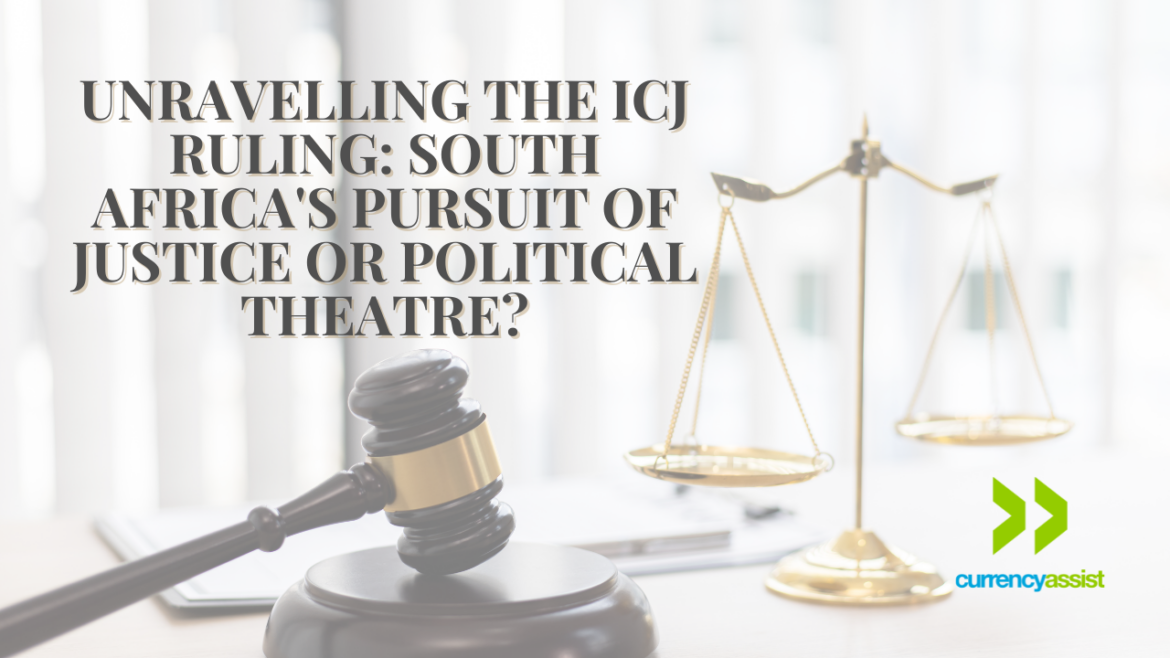In a recent landmark ruling by the International Court of Justice (ICJ), South Africa’s case against Israel brought attention to the ongoing conflict in Gaza. The Department of International Relations and Cooperation (Dirco) and President Cyril Ramaphosa hailed the decision as a decisive victory for justice, but a closer examination reveals a more nuanced reality.
The President’s statement in his televised speech was: “The ICJ, as the principal judicial organ of the United Nations, has handed down a ruling that the State of Israel should immediately implement a set of provisional measures to prevent any further acts of genocide in Gaza, to desist from such acts, and to take effective measures to prevent the destruction and ensure the preservation of evidence relating to acts of genocide. As the South African government, we welcome the decision of the ICJ.”
In reality, the court refrained from making any determinations on the case’s merits, reserving judgment for future hearings. His misstatement is notable, but perhaps unsurprising in light of the domestic challenges that plague his presidency, with a surge in violent crime, ongoing power outages due to Eskom’s mishaps, and disruptions in goods transportation at ports—all unfolding against the backdrop of an upcoming election.
Dirco’s sudden championing of “the implementation of the international rule of law” comes under scrutiny, especially considering South Africa’s previous engagements with Russia, Sudanese warlords, and others. The inconsistency in supporting diverse geopolitical actors raises questions about the true motivation behind the pursuit of justice in the Israel-Gaza conflict.
While the Court mandated certain provisional measures, instructing Israel to undertake all necessary actions to forestall the occurrence of genocidal acts in Gaza and to facilitate the delivery of humanitarian aid to the region; South Africa’s case prominently featured a demand for an immediate end to Israel’s operation in Gaza. However, the court’s decision did not endorse this demand, which could in effect be saying that pursuing Hamas terrorists responsible for civilian deaths was legitimate. The court also called on Hamas to release hostages, a request South Africa oddly omitted.
Quoting Nelson Mandela’s words, “Our freedom is incomplete without the freedom of the Palestinians,” adds a historical context to South Africa’s stance. However, Mandela’s nuanced views on Israel and Palestine, recognising both Israeli and Palestinian rights, diverge from the current one-sided support, resembling more of political theatre than a genuine pursuit of resolution.
Favouring certain entities over others may jeopardise South Africa’s standing as a reliable trade partner and investment destination, impacting its economy and the rand value.
The world’s response to the ICJ’s interim ruling reflects diverse opinions:
– Palestine: Welcomed the ruling as an important reminder that no state is above the law.
– Israel: Prime Minister Netanyahu criticised the ruling as outrageous, emphasising Israel’s commitment to self-defence.
– United States: Supported the ICJ ruling, yet still asserting Israel’s right to act in accordance with international law.
– Hamas: Hailed the ruling as important in isolating Israel.
– Other Nations: Responses varied, with some expressing concerns about the case’s impact on achieving a sustainable ceasefire.
The ICJ’s provisional measures order in the South Africa vs Israel case has stirred global reactions and brought South Africa’s motivations and foreign policy into question. While the pursuit of justice for the Palestinian people is crucial, the inconsistency in approach and potential economic repercussions highlight the delicate balance between political motives and genuine pursuit of human rights on the international stage.

